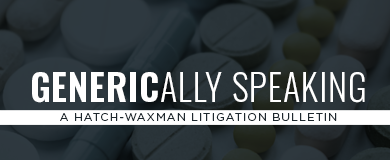- Acumen Powered by Robins Kaplan LLP®
- Affirmative Recovery
- American Indian Law and Policy
- Antitrust and Trade Regulation
- Appellate Advocacy and Guidance
- Business Litigation
- Civil Rights and Police Misconduct
- Class Action Litigation
- Commercial/Project Finance and Real Estate
- Corporate Governance and Special Situations
- Corporate Restructuring and Bankruptcy
- Domestic and International Arbitration
- Entertainment and Media Litigation
- Health Care Litigation
- Insurance and Catastrophic Loss
- Intellectual Property and Technology Litigation
- Mass Tort Attorneys
- Medical Malpractice Attorneys
- Personal Injury Attorneys
- Telecommunications Litigation and Arbitration
- Wealth Planning, Administration, and Fiduciary Disputes
Acumen Powered by Robins Kaplan LLP®
Ediscovery, Applied Science and Economics, and Litigation Support Solutions
-
April 15, 2024Robins Kaplan Named to 2024 BTI Client Service A-Team
-
April 9, 2024Robins Kaplan LLP Files Complaint Against Social Media Giants Meta, Snap, TikTok on Behalf of Spirit Lake Nation, Menominee Indian Tribe of Wisconsin
-
April 8, 2024Tara Sutton, Emily Tremblay Shortlisted for Euromoney’s Women in Business Law Awards
-
April 24, 2024IP Leadership Executive Summit
-
April 24, 2024IP Odyssey: Navigating the Latest Developments in Intellectual Property Law
-
April 30, 2024Navigating Generational Dynamics
-
March 2024e-Commerce: Pitfalls and Protections
-
March 22, 2024‘In re Cellect’:
-
March 14, 2024How Many Cases Have You Tried to a Verdict?
-
September 16, 2022Uber Company Systems Compromised by Widespread Cyber Hack
-
September 15, 2022US Averts Rail Workers Strike With Last-Minute Tentative Deal
-
September 14, 2022Hotter-Than-Expected August Inflation Prompts Massive Wall Street Selloff
Find additional firm contact information for press inquiries.
Find resources to help navigate legal and business complexities.
Jazz Pharms., Inc. v. Avadel CNS Pharms.
Xyrem® (sodium oxybate)
November 18, 2022

Case Name: Jazz Pharms., Inc. v. Avadel CNS Pharms., LLC, No. 21-691-GBW, 2022 WL 17084371 (D. Del. Nov. 18, 2022) (Williams, J.)
Drug Product and Patent(s)-in-Suit: Xyrem® (sodium oxybate); U.S. Patent No. 8,731,963 (“the ’963 patent”)
Nature of the Case and Issue(s) Presented: FDA approved Xyrem for the treatment of cataplexy and excessive daytime sleepiness. The active ingredient in Xyrem is sodium oxybate, a form of gamma-hydroxybutyrate, which is subject to abuse. For this reason, Xyrem is subject to a Risk Evaluation and Mitigation Strategy (“REMS”) protocol. Jazz’s ’963 patent, which was Orange-Book listed, claims a computer-implemented system to address certain FDA-required REMS conditions of using Xyrem. Jazz listed the ’963 patent on the basis that it claims a method of using Xyrem.
Avadel submitted an NDA requesting approval for a once-nightly formulation of sodium oxybate for the treatment of narcolepsy. In May 2021, Jazz initiated litigation, asserting the ’963 patent and five additional non-Orange Book listed patents. Avadel counterclaimed, seeking an order requiring Jazz to delist the ’963 patent. The motion was granted.
Why Avadel Prevailed: The Hatch-Waxman Act outlines three categories of patents eligible for listing in the Orange Book: a drug substance, a drug product, or a method of using such a drug for which approval is sought or has been granted in the patent holder’s NDA. As the court explained, FDA does not make a determination as to whether particular patents should be listed in the Orange Book and instead creates a cause of action under which an applicant can seek an order requiring the NDA holder to de-list the patent.
The parties agreed that the ’963 patent did not claim a drug substance or a drug product, and in light of the Court’s claim construction, the ’963 patent did not claim an approved method of using the drug. Jazz argued that de-listing the ’963 patent would be improper, though, because doing so would impermissibly apply the Orange Book Transparency Act (“OBTA”). According to Jazz, the OBTA, enacted in 2021, could not retroactively apply to ’963 patent that was listed in the Orange Book in 2014. But the court found that the de-listing statute that Avadel relied on in its motion was enacted in 2003—well before listing of the ’963 patent or enactment of the OBTA. As a result, the court issued an order requiring Jazz to delist the ’963 patent from the Orange Book.
Related Publications
Related News
If you are interested in having us represent you, you should call us so we can determine whether the matter is one for which we are willing or able to accept professional responsibility. We will not make this determination by e-mail communication. The telephone numbers and addresses for our offices are listed on this page. We reserve the right to decline any representation. We may be required to decline representation if it would create a conflict of interest with our other clients.
By accepting these terms, you are confirming that you have read and understood this important notice.
